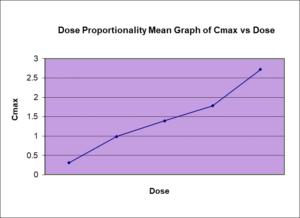Surviving an FDA Inspection at a Clinical Research Organization (CRO)

This article is prepared to provide an overview of suggested steps to take prior to and during an FDA GCP Inspection of a Clinical Research Organization to achieve success.
TYPE OF FDA INSPECTIONS
FDA conducts several types of inspections routinely to assist in the protection of consumers of unsafe products. These inspections may be:
-
- “For cause” inspection to evaluate a specific problem that has been brought to the attention of FDA.
- Routine inspection of a regulated facility
- Pre-approval inspection after submission of an NDA (new drug application)
FDA Inspections for clinical research trials may be unannounced or announced, but the key to success is to always be “Inspection ready”.
When the inspection is unannounced, FDA could simply show up at your door one morning (perhaps 1 or 2 Inspectors) and inform you that they are there for an inspection of your facility. You cannot refuse an FDA inspection, and FDA will not delay the clinical trial inspection if certain personnel are not present.
The inspection must go on, with or without key personnel being present. If FDA arrives at the door one morning, and you are out of town on business, be prepared to return quickly. They will not wait for the inspection to begin once they arrive, the inspection must go on!
When it’s an announced inspection, FDA will typically inform the individual who has oversight of the CRO a few weeks ahead of time (2-4 weeks). They usually will not inform you which studies will be inspected until the day of arrival, that is why it is so critical to always be “inspection ready” and to have your documentation of the clinical trial inspection in good order, and compliant at all times.
WHAT IS THE PURPOSE OF AN FDA INSPECTION?
There could be several reasons that prompts an FDA Inspection at your site, to name a few;
-
- Real time assessment of the conduct of a clinical trial
- Concerns by a Sponsor
- Termination of a clinical site
- Responding to a complaint made to FDA regarding the conduct of a specific clinical trial
- Simply to verify the data integrity and accuracy of the data submitted to the agency
HOW TO PREPARE FOR A CLINICAL INVESTIGATOR SITE INSPECTION:
What steps should you take if FDA has just informed your Clinical Research Organization (CRO) that they will be coming for an audit/inspection of a clinical trial in a few weeks?
A suggested plan (checklist) to follow regarding preparing for an FDA GCP audit is as follows:
-
- Inform senior management and designated staff of the upcoming inspection.
- If/when the specifics of the studies to be inspected are provided, inform the respective sponsor (s) as soon as possible.
- The Inspector will contact you directly to confirm the start date/time of the inspection. Provide your contact details in the event the Inspector must reach you if there is a delay of arrival etc.
- Documents within your CRO should all be updated and current, if not already, such as:
- Training records (e.g. Job Descriptions, CVS, Job Matrices etc.)
- Standard Operating Procedures
- Organizational Charts
- Floor Plans
Documents & Records:
Do make Documents & Records Easily Accessible in a specific location at your CRO site once the studies are identified for the inspection.
It is standard practice that requested study files are provided to the FDA Inspector by the Head of QA, or designate, in addition to any requested copies. Any photocopies must be made by QA staff and must be stamped either True Verified Copy or Copy, as applicable, and provided to the Investigator upon request.
Some Investigators may request only electronic documents, therefore, have a USB available to store all requested appropriately stamped documents to provide to the Inspector at the end of each day. It is imperative that you provide the documents in a timely manner when requested.
Facility Tour:
It is standard practice for an FDA Inspector to request a tour of the facility, you should discuss and determine the most qualified designate from your company who will host the tour, prior to the commencement of the inspection. You don’t want to be scrambling at the last minute, deciding who will host the tour, the goal is always to appear that you have everything under control, you do not want to appear to be disorganized.
Internal Pre-Audit:
In preparation for the tour, it is highly suggested for QA to do an internal audit of the facility to ensure that the areas are clean and that all the work areas are tidy and cleared of any clutter prior to the inspection.
Staff Training Documentation:
All staff training documentation should be up-to-date and current. Each employee should have training records that are current and complete, including SOP reading, Job Descriptions, CVs, Job Matrices etc.). Staff should read all required SOPs to ensure none are pending prior to the inspection. If you do not and your training record is requested by FDA, it could become an observation, and you want to avoid that at all costs! SOPs:
Any SOPs that may be expired or close to expiry, must be revised and finalized prior to the dates of the inspection. If they are found expired during the inspection, it could result in an observation by FDA.
SOP for Hosting External Client and Regulatory Audits:
If you have an SOP for the Hosting of External Client and Regulatory Audits, it is highly suggested to ensure that all staff reread this SOP as a refresher prior to the inspection. If you do not presently have such an SOP, it is highly suggested that one be created for future use.
Organizational Charts:
Organizational charts should be updated by HR and current in preparation for the inspection.
INSPECTION DAYS
The conduct of the inspection is seamless if you are prepared and prompt with responses upon request. The opening meeting will commence upon arrival of the Inspector, whereby he/she will inform you which specific studies are to be inspected. Be prompt in your retrieval of the study documentation and providing them to the Inspector.
List of Dos and Don’ts for an FDA Inspection*
Make FDA Inspection Responses Clear and Concise: Keep to the essentials:
“When asked a question by the FDA Investigator, answer only the question asked of you.
Do answer the question, and only the question. Don’t offer more information that what is asked or requested by FDA.
Inform the Investigator that you are not sure, but will find out for them.” If the FDA Inspector has a question or makes an observation that you do not understand, do ask for clarification and an explanation.
Do not guess at your response, answer truthfully and never make up an answer. If you are not sure, indicate such and inform them that you will get back to them. Do not be argumentative and always be polite.
“If an issue arises, do not attempt to do a “quick fix” in front of the investigator.” Discuss any resolution to issues with management in another room, don’t discuss in front of the Investigator, that could make matters worse.
Do not feel obligated to fix the issues (depending on the type of issue) during the inspection as you want to make the right decision in addressing an issue, if rushed, the wrong decision may be made, use your best judgement.
The Inspector will inform you at the end of each day if there are any observations. It is good practice to inform the management team on a daily basis of any observations, who in turn will notify the sponsor(s) whose study(ies) is (are) being inspected. The FDA Inspector may or may not take a sampling of retention samples back to their lab for bioanalysis.
FDA will validate the authenticity and accuracy of study data generated during the conduct of a clinical trial and confirm compliance during an inspection. Each day the Inspector will request additional documents to support the inspection, usually electronic, so be prepared to save all requested documents on a USB and provide to him/her at the end of each inspection day.
On occasion, an FDA Inspector will have another inspector from a different regulatory agency present as an observer, e.g. Health Canada. It is quite common and nothing to be alarmed about.
CLOSING OF THE INSPECTION
At the closure of an inspection, the FDA Inspector will conduct a closing (sometimes called exit interview) with the Principal Investigator and his/her designates. If there are any observations, they will be discussed with you and if there are true deficiencies, a 483 will be issued to your clinical research site in which you will be given approximately 15 days to provide a response in writing, including a summary of all corrective/preventive action plans and timelines.
A Warning Letter is sent after the inspection only if the deviations from the regulations do not meet the minimum standard of regulatory requirements. An EIR (Establishment Inspection Report) is written up after the inspection and available to the site approximately 3-6 months after the inspection. The EIR will describe what the FDA Inspector did during the time spent at the facility, from the introductory stage until the closure of the inspection and handover of the 483 observations (if any).
If your clinical research organization has maintained accurate and compliant documentation of the conduct of the clinical trials inspected, you will be fortunate enough to not be issued a 483. That is the ultimate goal, if that is the case, sit back and relish in a successful FDA Inspection.
* Each FDA Inspection should be approached as a learning experience. Each Inspector may have a different approach with different type of queries, learn from the interaction you have with each Inspector and you will grow professionally from that experience.
Why Choose BioPharma Services?
BioPharma has successfully been through 10 FDA Inspections without a 483 being issued! That speaks volumes to the quality and compliance of the processes and documentation maintained at BioPharma. The recipe for success is to always be inspection ready, maintaining a quality system at a very high standard with complete/accurate documentation. BioPharma Services should be your top choice CRO from clinical trial inspection start to finish. Trust us with your next drug development project.
Find out why BioPharma might be the right partner for you! Learn more about BioPharma Services and the wide array of bioanalytical services we provide.
BioPharma Services, Inc., a Think Research Corporation and clinical trial services company, is a full-service Contract Clinical Research Organization (CRO) based in Toronto, Canada, specializing in Phase 1 clinical trials 1/2a and Bioequivalence clinical trials for international pharmaceutical companies worldwide. BioPharma has clinical facilities both in the USA and Canada with access to healthy volunteers and special populations.



